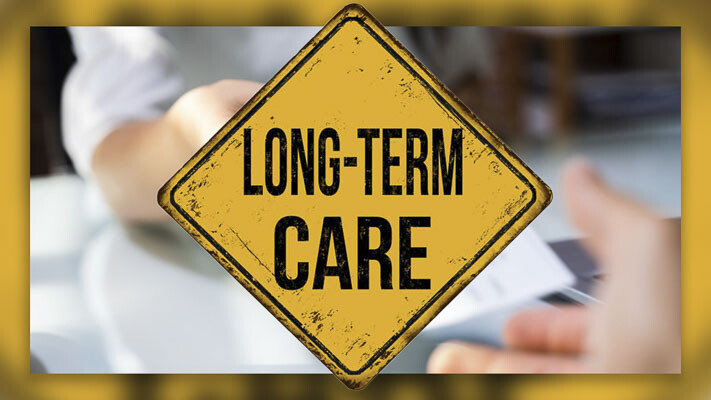
Elizabeth Hovde also shares that the marketing also doesn’t tell you that the inadequate benefit doesn’t cover most people’s long-term-care needs, even if you do qualify
Elizabeth Hovde
Washington Policy Center
Don’t think there weren’t lawmakers willing to stop a disingenuous long-term-care program and tax that will add up to a poor investment for workers trying to survive inflation, handle life’s needs and save some money for the future. There were a lot of them.

Failed House Bill 1011 alone had 31 sponsors in the Washington state House of Representatives. I like to think the proposal would have picked up even more lawmakers who couldn’t escape their constituents’ discontent with the idea that they should pay for something they may never need, that they could fund better in the private sector and that a taxpayer safety net already exists to provide Washingtonians.
House Bill 1011 would have repealed the state’s 2019 long-term-care law before the payroll tax begins this summer. Once the tax does begin, Washington state workers will likely be forever saddled with it. The tax rate of 58 cents for every $100 a worker makes also will likely increase.
The state’s payroll tax for the Paid Family and Medical Leave program has doubled over its short lifetime. During tax season, many of us get to better see the money that left our paychecks for a program we didn’t need or use over the year. Never mind that we all have different life needs, not just the ones the state is mandating that we save for. More money will be taken for PFML next year, and the program will continue to burden employers.
Back to long-term care (LTC): Various Hail Mary passes this session weren’t granted hearings. Why? I assume because Democratic leadership decided it’d “been there, done that” when it came to the LTC law — and ignoring taxpayers’ pleas, yet again when it comes to this law, isn’t a good look. Keeping talk to a minimum was smart. I expect the “shhhhh” will continue in the final weeks of the legislative session.
Last year, lawmakers postponed the tax’s collection until after the 2022 elections, having received loud disapproval of the law. Nearly half-a-million workers have been able to escape the tax. The 18-month delay somewhat quieted the masses, which is unfortunate. I suggest lawmakers prepare for a loud summer when workers see that the misguided mandate makes their paychecks go down. Payroll taxes pile up and make Washington state a less appealing place to live and work.
WA Cares, the program that the coming payroll tax is supposed to fund, is being sold as insurance for future long-term care that workers might need someday. The state is even calling the tax a “premium.” It’s not. It’s a tax. It’s a tax that sometimes will pay for other people’s possible long-term-care needs, not yours. “Other people” will include those with resources who may not need financial help.
The state just created a safety net for people in need and those not in need so the state can help its Medicaid budget. Reforming the qualifications for LTC Medicaid funds would make more sense, as would simply making people aware of their possible need for long-term care. Instead, lawmakers opted for an income redistribution where money will sometimes be taken from low-income workers to help those with higher incomes.
Also ignored so far this session are recommendations from a commission that was assigned to come up with ways to make the tax more workable and the program more likely solvent. That’s weird.
The state is moving full-speed ahead with WA Cares. An aggressive marketing campaign gives half-truths and paints rosy scenarios. It fails to communicate that you might pay into this program for all of your working years and never qualify for the WA Cares benefit. People who move or retire out of the state are disqualified from the get-go. The marketing also doesn’t tell you that the inadequate benefit doesn’t cover most people’s long-term-care needs, even if you do qualify. The glossy, pull-heartstrings campaign does not mention how people with modest means and in need of long-term care can already qualify for Medicaid without giving over a portion of their wages during their working years.
Read more about WA Cares in my policy brief, “New state-run program will not fix long-term care crisis, nor should it offer peace of mind to workers forced to fund it.” And start budgeting. The LTC payroll tax will be decreasing paychecks starting in July.
Elizabeth Hovde is a policy analyst and the director of the Centers for Health Care and Worker Rights at the Washington Policy Center. She is a Clark County resident.
Also read:
- Opinion: Not guilty verdict appropriate resolution in case of VPD officerClark County Today Editor Ken Vance offers his praise to the jury in the trial of Vancouver Police Officer Andrea Mendoza.
- Opinion: Union greed closed schools in Port AngelesLiv Finne of the Washington Policy Center offers a recent example to remind others that strikes by public school employees are illegal under state law.
- Opinion: Earth Day 2024 – Time to admit that government-run environmentalism is failingTodd Myers of the Washington Policy Center says that much of what we hear on Earth Day and throughout the year regarding the environment will continue to be mere puffery.
- Opinion: Where do we go from here at Ridgefield School District?When it comes to the Ridgefield School District bond proposal, Heidi Pozzo believes the message should be clear: people are unhappy their perspective is not being heard and considered.
- Letter: Officer Mendoza stood up for public safetyClark County Public Safety Alliance Co-Founder Ann Donnelly provides context of support for Officer Andrea Mendoza.










